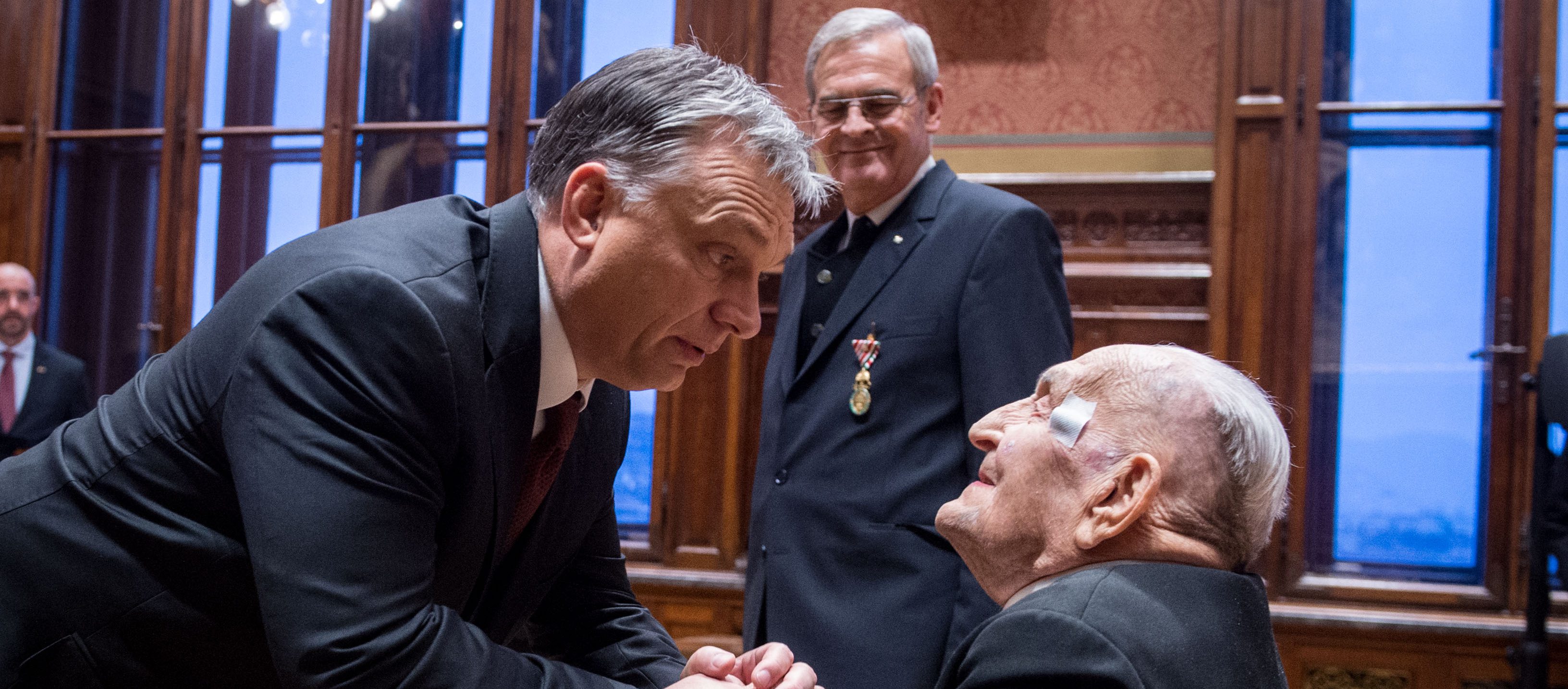
Prime Minister Viktor Orbán stressed at the award ceremony: the two awardees are braver than the brave as they „demonstrated faith and integrity, freedom and patriotism in trying times”.
They stood their ground firmly grasping their responsibility for those entrusted to them in border situations in which many would have failed, he highlighted. „They proved that the heroes’ justice is always in the future tense”, the Prime Minister added.

The Prime Minister described the awardees as two brave witnesses of Hungarian freedom and European Christian culture.
The Decree on the decoration awarded to László Tőkés was published in the Hungarian Gazette (Magyar Közlöny) on 11 March just days after Romanian head of state Klaus Iohannis stripped him of the award Romania’s Star National Order after Mr Tőkés suggested as a member of the European Parliament that Hungary should assume the status of “a protective power” over Transylvania.
The reasoning of the awarding of the Hungarian Order of Honour is similar to that which was attached to the Romania’s Star National Order: he was given the award in exceptional recognition of his courage, human dignity and merits in sparking the Timisoara (Temesvár) revolution that led to the fall of communist dictatorship and opened the road to freedom for Romania and Transylvanian Hungarians.

Benedictine friar-priest Olofsson Placid, who is one hundred years old this year, was interned to a forced labour camp in the Gulag for ten years in 1946, and after his return home, he was not allowed to work either as a priest, or as a teacher. According to the reasoning of the award, he received the decoration in recognition of his unprecedentedly long and exemplary life as an individual who served his exceptional calling with hope and joyful optimism even amidst the most inhumane circumstances and kept his ever richer faith despite the many trials and ordeals he underwent.
The award ceremony was attended – among others – by Speaker of the House László Kövér, the Minister heading the Cabinet Office of the Prime Minister Antal Rogán, Cardinal Péter Erdő, Archbishop of Esztergom-Budapest, István Bogárdi Szabó, Parish President of the Hungarian Reformed Church Synod, and Asztrik Várszegi, Pannonhalma Benedictine Archabbot.
